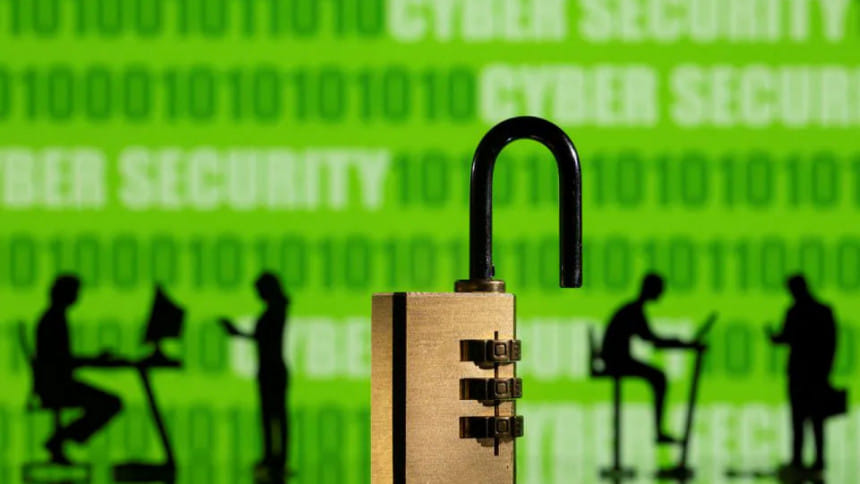Smart cybersecurity for a smarter nation

In this era of unprecedented technological innovation, the concept of a "smart nation" has emerged as a compelling vision for the future. It represents a paradigm shift where cutting-edge technologies, including the Internet of Things (IoT), artificial intelligence (AI), and big data analytics, are seamlessly integrated to transform the very fabric of society. These smart nations epitomise the convergence of technology and governance, aiming to elevate the quality of life for their citizens through enhanced urban living, optimised resource utilisation, and transformative public services.
However, the journey towards realising this vision is not without its challenges. The intricate and interconnected nature of these smart societies, while offering a multitude of benefits, also exposes them to a range of cyber threats. These threats pose a substantial risk to critical infrastructure, data privacy, and the integrity of the digital ecosystems that underpin these smart nations.
Imagine a scenario where a cyberattack cripples a smart city's power grid. Such an attack could result in a widespread power outage, plunging essential services, from healthcare and transportation to emergency response systems, into chaos. This scenario is not a distant hypothetical but a stark reality, as evidenced by the devastating 2022 cyberattack on Ukraine's power grid. In that incident, hackers gained control of the power grid, causing a blackout that affected hundreds of thousands of people.
The interconnectedness of smart nations also exposes them to the risk of data breaches. These nations accumulate vast amounts of sensitive data, including healthcare records, transportation logs, and personal information. In the absence of robust cybersecurity measures, these data repositories become enticing targets for malicious actors. The cyberattack on Singapore's healthcare system, which exposed the health records of 1.5 million citizens, serves as a stark reminder of the far-reaching consequences of such breaches.
Even the most sophisticated smart cities are not immune to cybersecurity vulnerabilities. Atlanta, a city renowned for its forward-thinking initiatives, fell prey to a ransomware attack in 2018. This attack crippled critical city services, including the court system, the police department, and a number of vital infrastructures. Cybercriminals demanded a hefty ransom in Bitcoin to unlock the city's data.
Bristol, another city with a thriving smart city ecosystem, encountered a vulnerability in its smart city platform. This vulnerability allowed hackers to manipulate data from various sensors, including those employed for traffic management and environmental monitoring.
The extensive reliance of smart cities on IoT devices, ranging from traffic sensors to smart metres, further amplifies their susceptibility to cyberattacks. These devices, if left unprotected, can be exploited by malicious actors, potentially causing traffic chaos, accidents, and disruptions to critical services. San Francisco's extensive use of IoT devices in areas like transportation and public safety made it vulnerable to IoT vulnerabilities. A vulnerability in the city's IoT infrastructure allowed hackers to manipulate traffic signals, leading to traffic congestion and safety concerns.
To counter these cybersecurity threats, smart nations must adopt a multifaceted and adaptive approach to safeguarding their digital infrastructure. This approach should encompass advanced technologies, real-time monitoring, adaptive strategies, and adherence to cybersecurity regulations. For instance, the U.S. Department of Homeland Security's (DHS) Continuous Diagnostics and Mitigation (CDM) program provides real-time protection against cyber threats for federal agencies, demonstrating the crucial role of government initiatives in ensuring national cybersecurity.
Data breaches have become a prevalent concern, prompting the enactment of regulations like the European Union's General Data Protection Regulation (GDPR) and the California Consumer Privacy Act (CCPA) to safeguard individual data. These regulations mandate that organisations implement robust cybersecurity measures to protect personal information, ensuring privacy and data integrity.
The Mirai botnet attack starkly exposed the vulnerability of IoT devices to cyberattacks. Smart cybersecurity solutions can effectively detect and prevent such attacks on IoT devices, preserving data integrity and device functionality. Solutions like Operational Technology Security, Cyber Asset Attack Surface Management, or IoT Security Platform specialise in identifying and protecting against IoT device vulnerabilities.
The Stuxnet malware attack targeting Iran's nuclear program underscored the critical need for real-time threat monitoring and adaptive strategies. Multiple security firms leverage artificial intelligence and machine learning to identify and respond to emerging cyber threats in real-time, demonstrating the importance of staying ahead of cyber adversaries.
Singapore's Cyber Security Agency (CSA) serves as a compelling model for building public trust in a smart nation's digital ecosystem. CSA collaborates closely with government agencies and industry partners to protect critical infrastructure and enhance public confidence in the security of digital services. The European Union's Network and Information Systems Directive (NIS Directive) mandates that operators of essential services maintain a high level of cybersecurity, highlighting the importance of regulatory frameworks in enhancing cybersecurity.
To successfully construct a truly smart nation, governments must prioritise smart cybersecurity as a cornerstone of their digital transformation strategy. This entails investing in cutting-edge cybersecurity technologies, fostering a culture of cybersecurity awareness, and nurturing a highly skilled cybersecurity workforce. Collaborating with the private sector and international allies can further bolster a nation's cybersecurity capabilities.
The realisation of a smart nation is inextricably intertwined with the robustness of smart cybersecurity. As governments embark on the journey towards creating more connected and intelligent societies, they increasingly recognise the pivotal role of cybersecurity in achieving their vision. By prioritising cybersecurity and implementing comprehensive strategies, nations can pave the way for safer, more resilient, and genuinely smart futures for their citizens.
BM Zahid ul Haque is a CISO and Cyber Digital Transformation Strategist. The author can be reached at [email protected].
Views expressed in this article are the author's own.
Follow The Daily Star Opinion on Facebook for the latest opinions, commentaries and analyses by experts and professionals. To contribute your article or letter to The Daily Star Opinion, see our guidelines for submission.

 For all latest news, follow The Daily Star's Google News channel.
For all latest news, follow The Daily Star's Google News channel. 












Comments